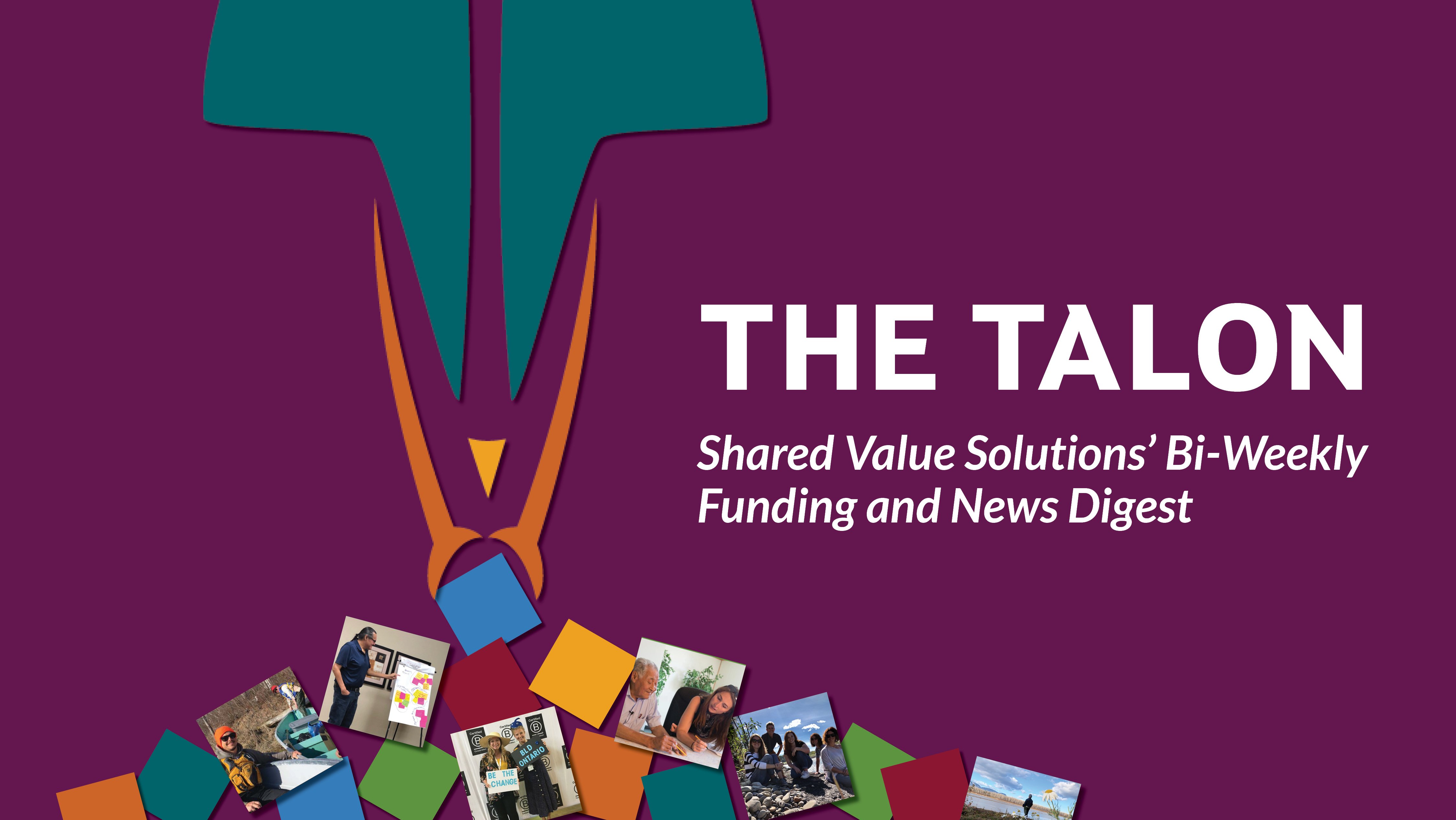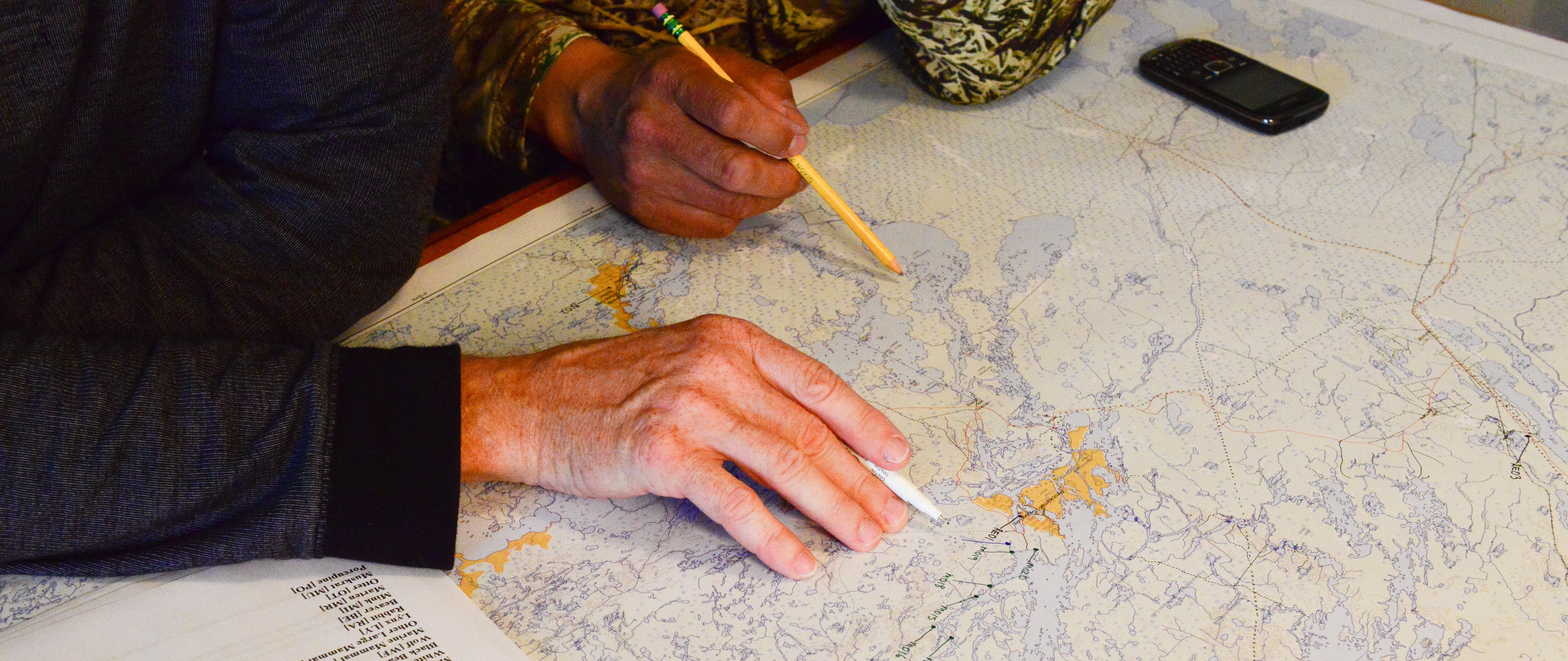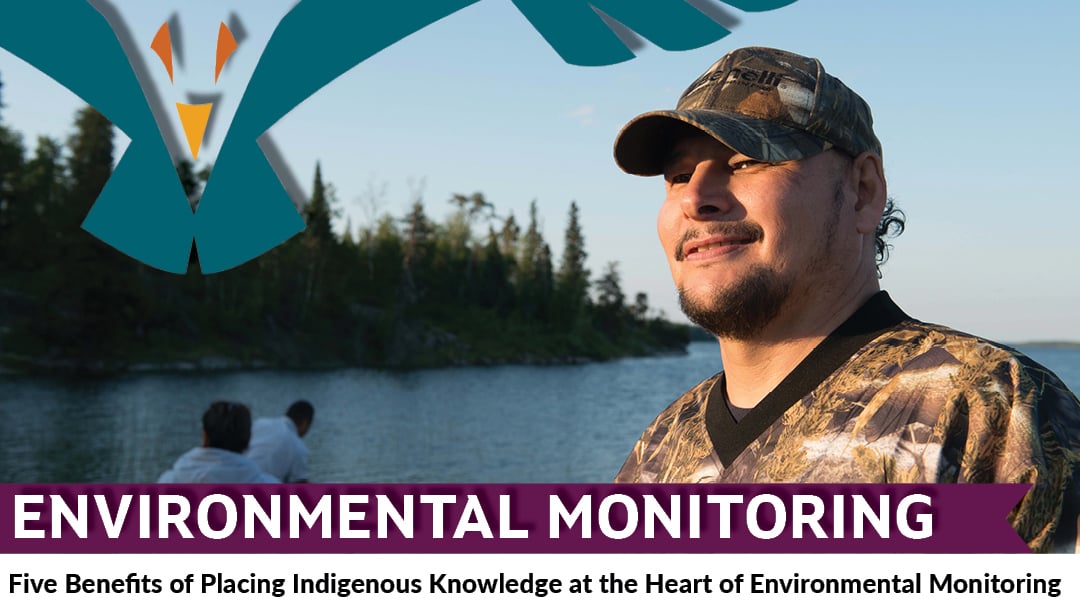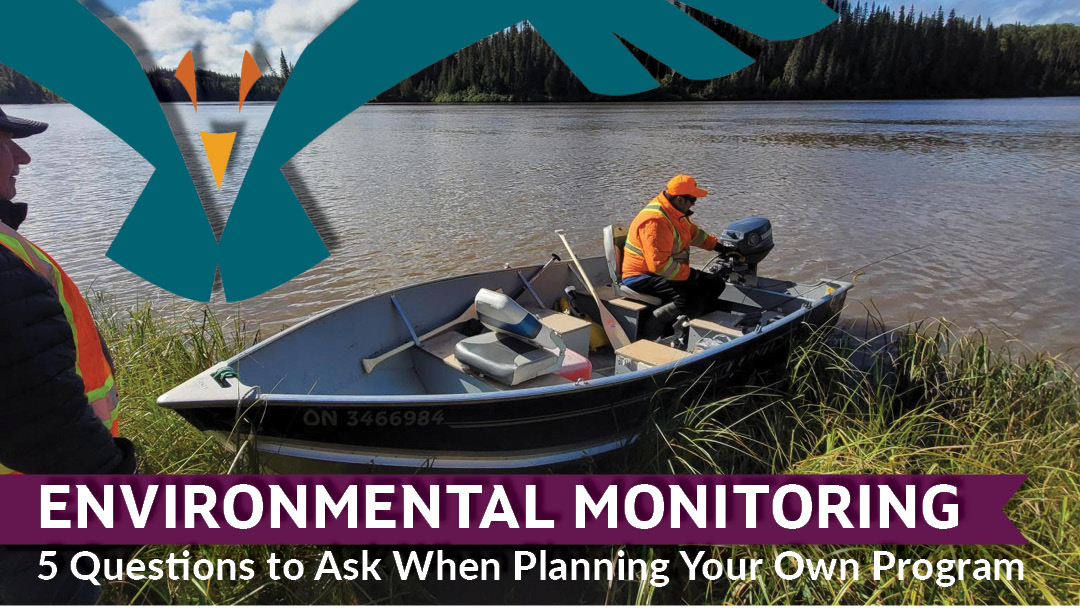 Welcome to Shared Value Solutions funding and news digest. We hope it finds you well.
Welcome to Shared Value Solutions funding and news digest. We hope it finds you well.
Hello and welcome to the Talon!
We're all dreaming of sunny summer days and getting back out into the field! See below for links to recent environmental monitoring posts for some fresh ideas for your Nation's monitoring programs. Last week, SVS's Jeff Hackett and Jeremy Shute presented to the Anishinabek Nation on a pressing issue all Nations are facing: data sovereignty. Drawing on our years of experience gathering, organizing, and securing data, we present our newest service offering - see below for more information. And, as usual, we share the most recent funding opportunities to explore.
Enjoy!
Data Sovereignty

Your data, under your care and control.
Reclaiming the control, protection, and management of your Indigenous Nation’s data can support your assertion of Treaty and Aboriginal Rights, and can be central in your journey towards self-determination. Having GIS and values data, lands management data, oral history recordings, agreements, and other important information at your finger tips can be a game changer in lands and band management, as well as in negotiations with proponents and governments.
Whether you need assistance in planning how your data will be managed, organizing and storing your data, or making sure it is protected and safe, our team at SVS is here to help. Put your data to work, for the benefit of your people.
Read more information here.
Indigenous Funding Programs
NATION WIDE HIGHLIGHTED PROGRAMS:
Indigenous Forestry Initiative
ICCE Community Funding Program- deadline is March 6th
The main objective of ICCE’s Community Funding Program is to support community-led projects to help build and enhance the capacity of Indigenous communities for cumulative effects management, monitoring and assessment in their territories, according to a Two-Eyed Seeing approach.
Learn more here.
Indigenous climate and environmental funding
Federal funding programs are available to support Indigenous climate action for a safer and cleaner environment for future generations.
More information here.
The Government of Canada and the National Centre for Truth and Reconciliation launch a new funding opportunity to support Reconciliation Network in Response to Call to Action 65- Deadline May 15, 2023
This initiative will see SSHRC investing up to $6 million, with each grant valued at a maximum of $1 million over five years. The investment will support a national research program with multiyear funding to advance the collective understanding of reconciliation. The funded recipients will participate in activities managed by the NCTR, in its role as coordination hub for the Reconciliation Network.
The NCTR and SSHRC invite teams led by First Nations, Métis Nation or Inuit researchers to submit proposals for new or existing formal partnerships that contribute to our collective understanding of truth and reconciliation. Proposals could address residential school history; the ongoing legacy of residential schools; past Canadian policies of assimilation in one or more areas, including child welfare, education, language, culture, health and justice; or other significant issues.
More details on this initiative can be found on the RN CTA 65 funding opportunity page.
WWF-CANADA ANNOUNCES NEW FUND FOR INDIGENOUS PROTECTED AND CONSERVED AREAS
It will fund grants and contracts between $50,000 to $150,000 per year for up to three years to support Indigenous communities and organizations as they consider, establish or maintain IPCAs.
IPCAs are defined and managed by Indigenous communities, and stewarded through Indigenous laws and knowledge systems. In the wake of the COP15 UN biodiversity summit, support for IPCAs will be increasingly important, as countries strive to protect 30 per cent of the planet while upholding the United Nations Declaration on the Rights of Indigenous Peoples.
For more information, contact:
- Rebecca Spring, senior communications manager: rspring@wwfcanada.org
- Tina Knezevic, communications specialist: tknezevic@wwfcanada.org
- Laurence Cayer-Desrosiers, manager, communications (French language inquiries): lcdesrosiers@wwfcanada.org
The Green and Inclusive Community Buildings (GICB) Program is launching its second scheduled intake and is now accepting applications through the following intake streams:
Scheduled
Eligible applicants with large projects to retrofit existing community buildings or projects to build new community buildings with total eligible costs ranging from $3 million to $25 million can apply now until February 28, 2023, 15:00 ET.
Continuous
The GICB Program continues to accept applications from eligible applicants for small and medium sized projects to retrofit existing community buildings ranging in total eligible cost from $100,000 to $3 million until February 28, 2023, 15:00 ET.
More information here.
First Nations Drinking Water Settlement Open for Claims from Communities and Individuals
After a years-long fight for clean drinking water, Indigenous communities and individuals in Canada are a step closer to receiving money from a class-action lawsuit that was settled with the federal government for $8 billion last year. The claims process under the settlement opened up to submissions on Monday. Indigenous communities now have until Dec. 22 to file their claims, while individuals have until March 7, 2023.
NORTHERN CANADA FUNDING:
The Northern Contaminants Program
The Northern Contaminants Program (NCP) engages Northerners and scientists in research and monitoring of long-range contaminants in the Canadian Arctic, that is, contaminants that are transported to the Arctic through atmospheric and oceanic processes from other parts of the world and which remain in the Arctic environment and build up in the food chain. The deadline to apply is March 8th. More information here.
WESTERN CANADA FUNDING:
The Community Emergency Preparedness Fund (CEPF, deadline February 24, 2023 is a suite of funding programs intended to
enhance the resilience of local governments, First Nations, and communities in responding to
emergencies. Funding is provided by the Province of BC and is administered by Union of BC
Municipalities (UBCM).
More information here.
Indigenous Cannabis Business Fund (ICBF)
Overview
The Indigenous Cannabis Business Fund (ICBF) provides non-repayable funding contributions to First Nation Communities & businesses and Indigenous entrepreneurs in British Columbia that want to participate in and receive supports to advance economic development opportunities in the federally (production, distribution, and retail) and provincially (non-medical retail sales) regulated cannabis sector.
More information here.
Indigenous fund for community-based environmental monitoring- deadline Feb. 28th
In December 2017, the governments of Canada and Alberta renewed their commitment to provide clear and scientifically rigorous information about the environmental impacts of oil sands development in northeastern Alberta. This commitment also called for greater collaboration with representatives from local Indigenous communities to encourage Indigenous involvement in monitoring priorities and decisions.
The Government of Canada has committed up to $2 million annually to develop capacity for community-based environmental monitoring in the oil sands region that is designed and led by Indigenous communities. This funding opportunity will build capacity and provide an opportunity for community leadership in environmental monitoring design and implementation.
More information here.
EASTERN CANADA FUNDING
Indigenous Services Canada supporting First Nations recovery from Hurricane Fiona as part of federal government response
$4 million has been made immediately available through the Emergency Management Assistance Program (EMAP) to address recovery efforts and various needs and expenses identified by First Nations communities.
Read more.
MANITOBA SPECIFIC FUNDING
Manitoba government provides funding to protect fish and wildlife
The Manitoba government is helping protect the province’s natural resources by awarding over $1 million in funding for 35 fish and wildlife improvement projects from the Fish and Wildlife Enhancement Fund (FWEF), Natural Resources and Northern Development Minister Greg Nesbitt announced.
https://www.watercanada.net/manitoba-government-funding-protect-fish-wildlife/
ONTARIO SPECIFIC FUNDING
2023-2024 Grant Applications now live!
Miziwe Biik receives funding from Human Resources Development Canada through the Aboriginal Labour Force Development Circle to deliver the training programs to the Aboriginal community in the Greater Toronto Area.
Employers, individuals and community organizations are invited to send in applications.
Miziwe Biik offers different funding programs to assist with employing or training our clients. Visit our call for proposals page to learn more.
Learn more here.
Rural Innovation Fund: Deadline March 31 2023
This program will support a Northwestern Ontario rural community or Indigenous community with a population less than 3000 to adopt innovative approaches to identified gaps within their communities. Entrepreneurs located in these communities can also apply. More information here.

Opportunities Round-up:
-
-
Grants available for Emergency Response and Recovery for small Indigenous businesses and entrepreneurs in Central Interior BC. The program is to provide a monetary contribution to assist clients, Indigenous owned businesses, entrepreneurs, and First Nation Communities who have experienced business disruption and financial loss due to the 2021 BC Floods. Applications will be accepted until the BC Emergent Response and Recovery Grant fund is fully allocated.
-
Registration open for youth canoe trip from Peterborough to Curve Lake First Nation. More information here.
- Micro-Loan Fund Available for Indigenous Women Entrepreneurs
The National Aboriginal Capital Corporations Association (NACCA) and participating Aboriginal Financial Institutions (AFIs) are pleased to announce the establishment of a new $5 million Women Entrepreneurship Loan Fund.
AFIs across the country are now delivering the Women Entrepreneurship Loan Fund on behalf of Innovation, Science, and Economic Development Canada (ISED). First Nations, Inuit, and Métis women entrepreneurs from across the nation are now able to access loans up to $50,000 dollars to start or grow their business.
-
-
-
Clean energy in Indigenous, rural and remote communities. Environment and Climate Change Canada has announced an additional $300 million for clean energy projects. This funding supports projects that help advance Indigenous-led climate action, support local economic development and create skilled jobs while reducing pollution and improving air quality. There is no deadline to apply.
-
Pathways to Safe Indigenous Communities. The Government of Canada is providing $103.8 million over 5 years to assist First Nations, Métis, and Inuit communities with implementing and developing Indigenous-designed community safety projects. There are several activities eligible for this funding, including initiatives that recognize the importance of traditional knowledge and practices in community safety and well-being. There is no deadline for this funding.
- Assistance to be Offered to Residents of Mud Lake for Relocation (nationtalk.ca)
Assistance is being extended as a result of previous and potential flooding events which have been an ongoing concern for some residents. The decision to relocate or remain in the community will be up to each household. The amount of financial assistance payable to Permanent Residential Property Owners will be determined by the number of Permanent Residents living in the household.
Residents who wish to avail of relocation assistance, can contact Jacob Kimball, Manager of Legislation, at jacobkimball@gov.nl.ca or 709-729-5473 for further information.
-
-
- SCO Launches new survey seeking Citizen Input on Reforming Justice System (nationtalk.ca)
The Southern Chiefs’ Organization (SCO) has launched a new online survey with the goal of seeking input that will assist SCO in advocating for the creation of an effective, equitable, and safe justice system from a First Nations perspective.
The survey is the latest tool as part of SCO’s overall First Nation’s Justice Strategy, which includes a focus on restorative justice. SCO’s Restorative Justice Program serves several First Nations and has dedicated Community Justice Workers in six communities—Bloodvein, Long Plain, O-Chi-Chak-Ko-Sipi, Pinaymootang, Sagkeeng, and Sandy Bay First Nations. The program also serves Brokenhead, Dakota Tipi, Dauphin River, Ebb and Flow, Lake Manitoba, Lake St. Martin, Little Saskatchewan, Skownan, and beyond.
You can find the survey here: https://www.surveymonkey.com/r/SCO-IJS - United Brotherhood of Carpenters Canadian District receives $37 Million to Support Employers Hiring First-Year Apprentices (nationtalk.ca)
This program will fund assist Small and Medium Enterprises (SMEs) to hire new, first-year apprentices in the skilled trades and provide extra support for employers to assist apprentices from equity deserving groups.
Apprenticeships offer a great way to get the hands-on work experience needed to pursue a career in the skilled trades, and small business plays a fundamental role in Canada’s apprenticeship systems.Many SMEs do not have the resources to offer apprenticeship training opportunities. In an effort to change this situation, Rowe and the UBC Canadian District have launched a two-year, $37-million program funded by the government of Canada’s Apprenticeship Service to provide support to SMEs in Canadian construction and manufacturing “Red Seal” trades to help them to hire new, first-year apprentices needing a leg-up to begin lucrative careers in the well-respected skilled trades.
In addition to financial supports, the program provides assistance to help employers navigate the apprenticeship system, onboard new apprentices and set up the appropriate workplace training via a digital toolkit that can be found on their website at ubc-asp.ca.
- SCO Launches new survey seeking Citizen Input on Reforming Justice System (nationtalk.ca)
In our Blog

With field season quickly approaching, we are revisiting our Environmental Monitoring Guide as a source of inspiration! In this blog, we talked about the benefits of placing your community’s Indigenous Knowledge at the heart of your environmental monitoring plan. For some time, our team has been using the concept of “braiding” Indigenous Knowledge with western science as a way to acknowledge the crucial and defining role that these ways of knowing play in creating effective monitoring programs. While this still holds true, we’ve recently heard a new way of framing this concept that resonates with us even more: instead of just throwing Indigenous Knowledge into the mix of an existing western framework, what if we elevate it to be equal with western science? How would that change the environmental monitoring programs we create – and their impact?
Read more here.

If there is development taking place on your lands, a clear point of contact between your Nation and those proposing new development is essential. At its core, a lands and consultation department plays that important role between the Nation and industry, regulators, or other external parties, such as NGOs, municipalities, or even other First Nations who want to make decisions that impact your Nation’s land base. Having a dedicated department — however small — can make a lasting impact on engagement with proponents, the Crown, and your community to be informed on issues, understand how a proposed activity or decision will impact Rights and interests, and then respond effectively to further your Nation’s goals.
Read more in our blog post here.
SVS eBooks for Download: Collect them all!
Check out our collection of informative eBooks that are available for free download:
- Protecting What Matters: Environmental Monitoring Ideas Bundle for Indigenous Nations
- Channeling the Wisdom of Indigenous Knowledge
- Pandemic-Inspired Research Innovations
- Indigenous Planning Cheat Sheet
- Indigenous Business and the Resource Sector
- Indigenous Planning Starter Kit
- Indigenous Guardians and Development
- GIS Intro Guide: Harnessing the Power of Maps
- A Lands and Consultation Department Guidebook
- Planning Starter Kit
Download our eBooks here
About Us: Shared Value Solutions
We are a Canadian B Corp, and we assist Indigenous Nations with support throughout regulatory processes surrounding major development projects like mines, hydroelectric facilities, transmission lines, highway expansions, oil and gas pipelines, natural resource transport applications and nuclear power.
We have deep context and experience behind the recommendations we provide, having worked for our clients on almost every major project in Canada over the last 10 years. For us, it’s all about building long-term relationships with our clients. We want to get to know you and what you want to do so we can help you move your plans forward.
Core Services:
- Impact Benefit Agreement Negotiation Support
- Technical Reviews and Regulatory Process Support
- Community and Economic Development Planning
- Indigenous Knowledge and Land Use Studies
- Environmental Monitoring
- Guardians Program Development
- Climate Change Readiness
- GIS and Mapping
- and a whole lot more...www.sharedvaluesolutions.com
